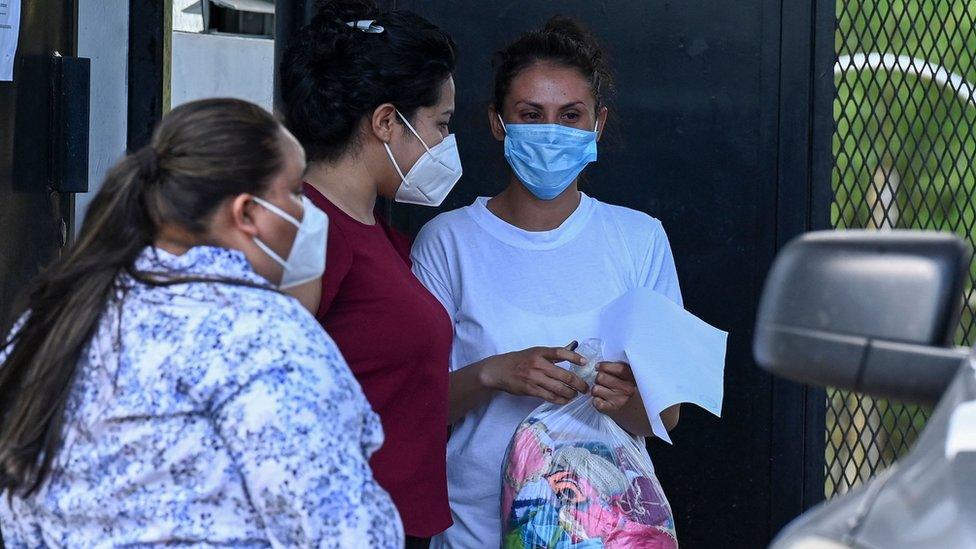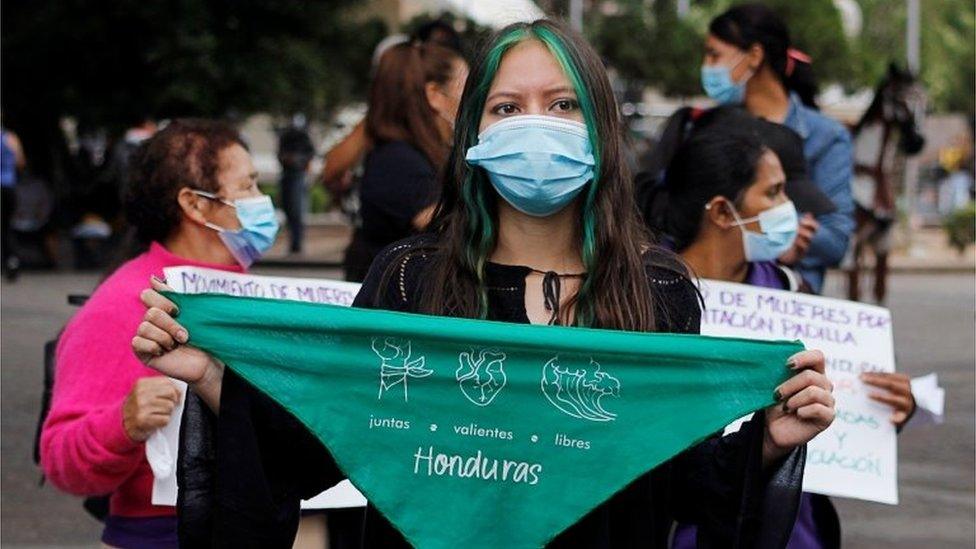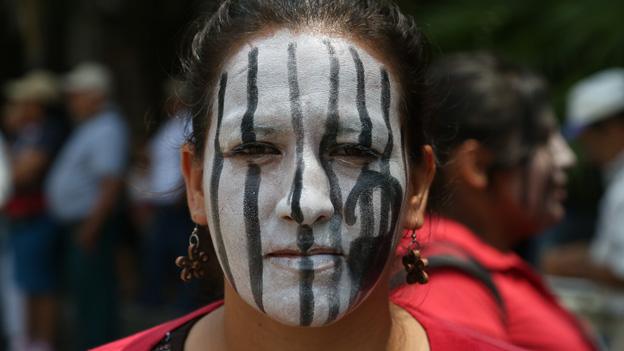Sara Rogel: El Salvador frees woman accused of abortion
- Published

Sara Rogel (in white) was freed after the attorney general's office did not appeal against her release
A woman in El Salvador who was sentenced to 30 years in prison after being accused of terminating her pregnancy and violating the country's strict abortion laws has been freed.
Sara Rogel was arrested nine years ago at the age of 20 after being taken to hospital with bleeding which she blamed on a fall at home.
She was prosecuted and convicted of aggravated homicide.
In January her sentence was commuted to 10 years. She was released on parole.
El Salvador, a socially conservative and mainly Catholic country, has one of the world's strictest bans on abortion, with no exception for rape or when the mother's life is at risk.
Dozens of women have been imprisoned for the deaths of their foetuses in cases where they said they had suffered miscarriages or stillbirths.
Dressed in white, Ms Rogel left the women's prison near Zacatecoluca, 56km (35 miles) south-east of capital San Salvador, on Monday. She was joined by members of her family and lawyer Karla Vaquerano.
"She was deprived of freedom for almost nine years, in a sentence we believed was unfairly given," Ms Vaquerano said, according to AFP news agency.
Ms Rogel, a student who was eight months pregnant, was found lying unconscious after she slipped and fell while washing clothes, according to her family.
She was taken to hospital, where she was detained on suspicion of having had an abortion. Human rights groups say she suffered a miscarriage and should never have been jailed.
"While in mourning for the heartbreaking loss of her pregnancy, Sara should have been with her family. Instead she was unjustly imprisoned for nine years," feminist activist Morena Herrera was quoted by Reuters news agency as saying.

Abortion in Latin America and the Caribbean
Abortion remains a deeply divisive issue in the region, where it faces strong opposition from the powerful Catholic Church and the growing evangelical community
It is banned in all circumstances in countries including the Dominican Republic, El Salvador, Haiti, Honduras and Nicaragua
It is allowed in some cases in most countries including Brazil, Chile, Colombia, Panama and Venezuela. The exemptions vary and could include to save the woman's life, in cases of rape, and/or in cases of foetal abnormalities
It is legal in Argentina, Cuba, Guyana, Uruguay and parts of Mexico
Source: Centre for Reproductive Rights

Ms Rogel's release had been ordered last week, but she had to remain in detention until a deadline passed for the attorney general's office to appeal against the decision.
According to pro-choice campaign group Agrupación Ciudadana, 16 other women are currently in jail in the country in similar cases. But, in recent years, some rulings have been reversed amid renewed scrutiny of the law.
In 2020, Cindy Erazo was released after six years in jail. She was accused of abortion, and initially sentenced to 30 years in prison for aggravated homicide, after an obstetric emergency during her eighth month of pregnancy resulted in a stillbirth.
And in 2019, Evelyn Beatríz Hernández Cruz, who had also been sentenced to 30 years in jail after her baby was found dead in the toilet where she gave birth to it before fainting, was released after nearly three years in prison.
Watch: The BBC spoke to Evelyn Beatríz Hernández Cruz in 2016
Related topics
- Published4 March 2021

- Published28 April 2015
